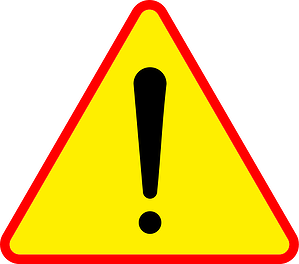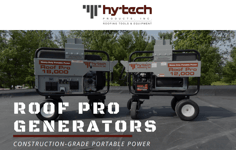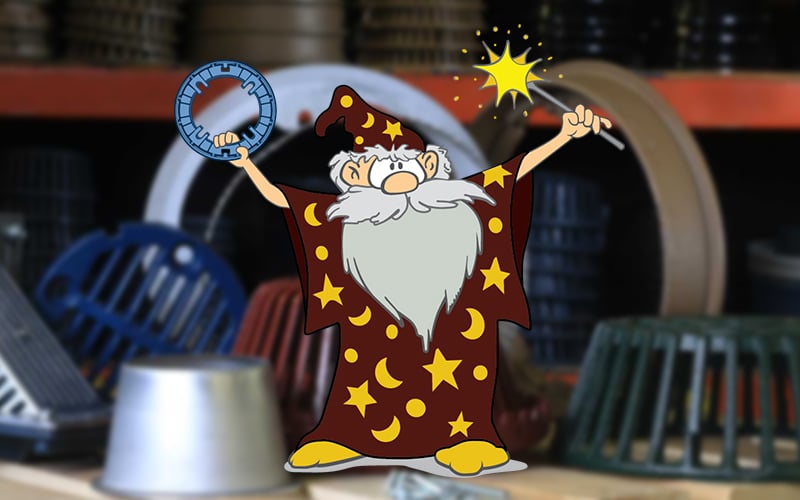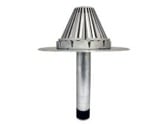 Improper or careless use of a portable generator can result in potentially serious safety hazards, including personal injury, electrical shock, and fire. Alleviate these dangers, and achieve safe, reliable performance, by adhering to the following 10 precautions.
Improper or careless use of a portable generator can result in potentially serious safety hazards, including personal injury, electrical shock, and fire. Alleviate these dangers, and achieve safe, reliable performance, by adhering to the following 10 precautions.
Note: This post is a general guide. Please refer to your product’s user guide for additional precautions.
1.) Understand Safety Documentation
Make sure that only those individuals who have read the product safety instructions operate the portable generator. In addition, take note of all warnings on unit labels and in manuals.
2.) If Leaving Unattended, Secure the Portable Generator
Prevent the generator from moving out of position, and causing a potentially hazardous situation, by:
- Only leaving it unattended on a flat surface, in which there is no chance of rolling, tipping or sliding.
- Locking all wheels, or if no locks are available, inserting wedges under all tires to stop them from rolling.
- Positioning it out of the way of frequently used pathways to prevent accidental bumping, which can cause the portable generator to tip or roll.
3.) Mind Power Cord Placement
Avoid running generator power cords through main pathways as they are potential tripping hazards, and if they are inadvertently pulled or snagged, you can damage the cord or generator outlet.
Move the generator as close to the work area as possible, and keep power cords guarded with cable covers or warning flags when possible.
4.) Beware of Moisture
Use extreme caution if operating a generator near standing water. If this standing water is exposed to electricity, anyone nearby is at risk of potential shock.
In addition, exposure to water can damage your generator. Water seeping into unprotected outlets or extension-cord ends can cause breakers to trip or short circuits.
5.) Don’t Overload Outlets
While splitters let you plug in additional equipment, they can cause more electricity to be drawn through the outlet than is safe. This will potentially lead to overheated outlets, damaged diodes, short circuits and blown fuses. If splitters are absolutely necessary, be sure to contact the manufacturer and ask about what precautions should be taken.
6.) Refuel with Caution
Prevent fires by taking special precautions when refueling or working around fuel tanks.
- Do not refuel while the engine is running or hot.
- Keep fuel containers out of the way of heavily trafficked areas.
- Do not smoke or use open flame near an open generator tank or gas can.
- Keep a fire extinguisher nearby and know how to properly use it.
- Store fuel only in an approved container, and in a well-ventilated area.
7.) Use in a Well-Ventilated Area
Exhaust fumes from gasoline engines—such as those found in generators—contain carbon monoxide—an invisible, odorless and potentially deadly gas.
For this reason, never operate gas generators in poorly ventilated areas.
Note: This precaution also applies to generators that are CARB compliant. While they are better at limiting carbon emissions than non-CARB compliant generators, they still give off exhaust fumes that can be harmful if inhaled in large quantities.
8.) Wear Hearing Protection
Excessive noise can lead to hearing loss. When working nearby loud generators, always wear hearing protection. This protection can range from foam earplugs to sound-canceling headphones, and depends on the loudness of the generator and other nearby machinery being operated.
9.) Regularly Service Equipment
When performing maintenance on the portable generator make sure you:
- Do not work on equipment when fatigued.
- Keep the machine turned off when possible.
- Use extreme caution when working on electrical components.
If replacement parts or repair service is required, contact a certified technician familiar with your generator before starting.
10.) Keep the Generator and Surrounding Area Clean
For the safest work environment, keep the generator and surrounding area free of debris.
- Remove all grease, ice, snow or materials that could create slippery conditions around the unit.
- Remove any rags or other materials that could create a potential fire hazard.
- Carefully clean up any gas or oil spills before starting your generator.
- Avoid working through or nearby standing water.
If you have any questions, or would like to discuss any of the above in more detail, contact Hy-Tech Products at 800-635-0384 or info@hytechroof.com.

Hy-Tech Roof Pro Portable Generators
Made in the U.S.A., Hy-Tech’s Roof Pro Family of Portable Generators are the first generators designed by roofers for the roofing and construction industries. Download the Hy-Tech Roof Pro Portable Generator Brochure to learn more.





